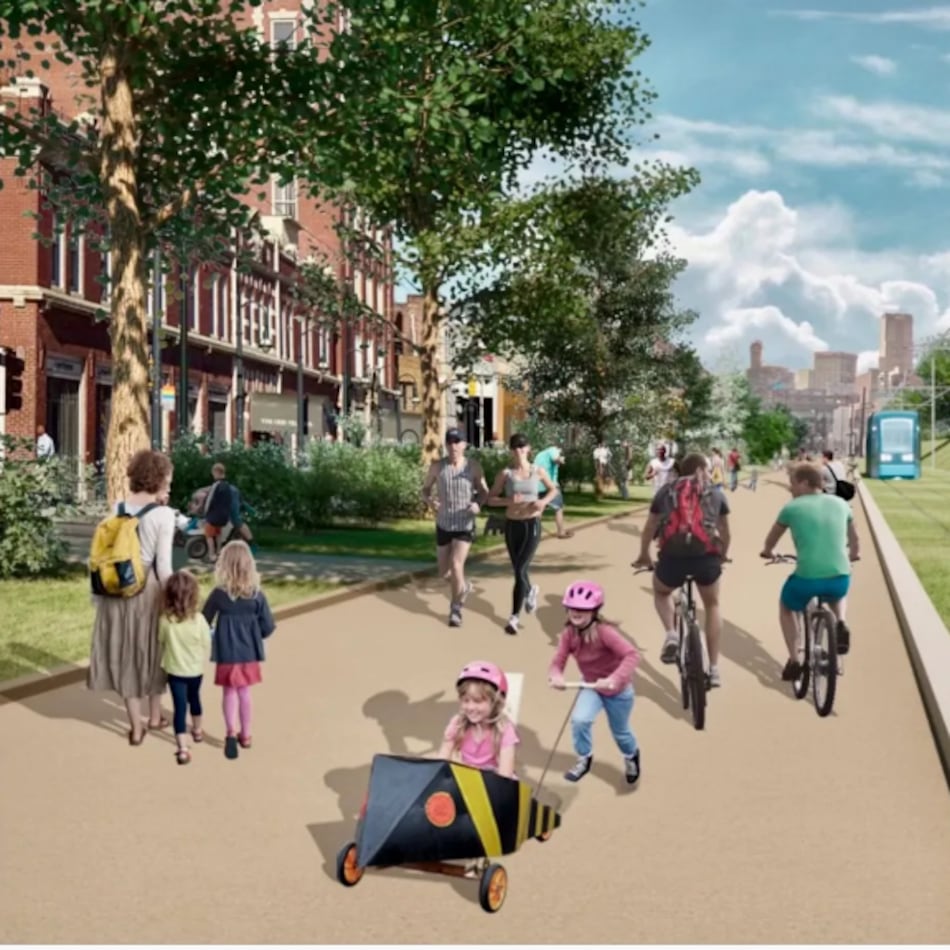Organizers of the Los Angeles Olympics will sell naming rights for a handful of its venues in deals expected to bring multiple millions of dollars to the 2028 Games while breaking down the International Olympic Committee's long-sacrosanct policy of keeping brand names off its arenas and stadiums.
The organizing committee announced the landmark deal Thursday, saying contracts were already in place with two of its founding partners — Honda, which already has naming rights for the arena in Anaheim that will host volleyball, and Comcast, which will have its name on the temporary venue hosting squash.
LA28 chairman and CEO Casey Wasserman said revenue from the deals goes above what's in LA's current $6.9 billion budget.
He portrayed the deal as the sort of paradigm-shifting arrangement that Los Angeles needs more than other host cities because, as is typical for American-hosted Olympics, the core cost of these games aren't backed by government funding.
“We're a private enterprise responsible for delivering these games,” Wasserman said in an interview with The Associated Press. “It's my job to push. That doesn't mean we're going to win every time we push, but it's our job to always push because our context is pretty unique.”
Wasserman said he also spent time explaining to IOC members how arena and stadium names are part of the lexicon in American sports.
“People know ‘Crypto’ as 'Crypto,' they don't know it as ‘the gymnastics arena downtown,’" Wasserman said of the home of the Lakers, Crypto.com Arena, which will host gymnastics and boxing in 2028.
Rights for up to 19 temporary venues could be available. The IOC's biggest sponsors — called TOP sponsors — will have first chance to get in on the deals. Wasserman said no venues will be renamed — so, for instance, if organizers don't reach a deal with SoFi (opening and closing ceremonies, swimming) or Intuit (basketball), no other sponsor can put its name on the arena.
Not included in this new arrangement are the LA Coliseum, Rose Bowl and Dodger Stadium, some of the most iconic venues in a city that hosted the Olympics in 1932 and 1984. Organizers said IOC rules that forbid advertising on the field of play will still apply.
The deal adds to a growing list of accommodations pushed through for Los Angeles, which is once again poised to reshape the Olympic brand, much the way it did in 1984.
In 2017, the city was bidding for the 2024 Olympics against Paris, but agreed to instead host the 2028 Games. It was part of a then-unheard-of bid process that rescued the IOC from the reality that cities were becoming reluctant to absorb the cost and effort to bid for and host the Summer Games.
Olympic watchers viewed the return of softball and baseball for 2028, along with the introduction of flag football (with help from the NFL) as changes that maybe only Los Angeles could've pulled off.
LA will also make a major scheduling change for the Olympics, moving track and field to the opening week of the games and swimming to the end.
Wasserman said the organizing committee's position as a private entity plays a major role in its relationship with the IOC.
“We spend the time, we do the work, we make the argument, and we don't settle for a ‘No,' because we don't have that luxury," he said.
___
AP Olympics: https://apnews.com/hub/2024-paris-olympic-games
The Latest
Featured


